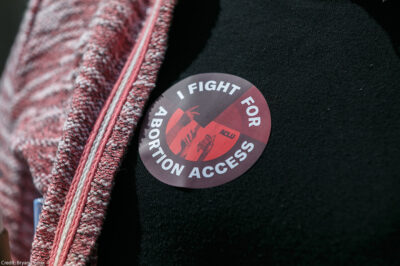Bush Administration's No-Sex-Until-Marriage is Approach is No Way to Fight the HIV/AIDS Pandemic
If you think the war in Iraq is the only foreign policy experiment based on ideology, wait until you finish today’s blog. Since President Bush launched his 5-Year, $15 billion President’s Emergency Campaign to End AIDS (PEPFAR), it has been almost impossible to explain to regular people (by this I mean not activists) that our government is massively funding so-called HIV-prevention programs that’s sole purpose is to tell people that if you don’t have sex until you are married and you remain faithful throughout, you will not contract HIV. Promoting condom use is strictly prohibited from these programs. And if condoms are discussed, they can only be with people who the Bush Administration considers high-risk — sex workers and couples where one partner is infected. To be fair, not all the U.S. HIV-prevention dollars go to AB-only programs. The rules require that one-third of the overall sexual transmission prevention dollars be spent on AB. That amount totaled $207 million in 2004, and is expected to rise to $332 million in 2006.
But, I kid you not, each and every time I have talked to someone about this absurd policy, no matter what political stripe, people are dumbfounded. The typical response is “that is crazy.” In fact, most people do not even believe me. Well folks, the cat is finally out of the bag.
On Tuesday, April 4, the U.S. General Accounting Office (GAO) in its report to Congress found that the U.S.’s abstinence/be faithful (AB) HIV-prevention policy is undermining developing countries’ efforts to fight this devastating disease. The report found that countries are thoroughly confused (who wouldn’t be) on how the money should and should not be used. They also found that condom use is being consistently marginalized and the money is being shifted away from important mother-to-child transmission to adhere to the AB requirement. The report also found that the AB restrictions were being applied to ALL U.S. prevention dollars, not just those in PEPFAR.
What the report doesn’t tell you is everything else that is wrong with this policy. Number one, abstinence-unless-married programs do not work. In fact, in the U.S., these programs have been proven to put people at-risk by eliminating critical sexual health information. Two, MARRIED women in Africa are most at-risk of contracting HIV. So why on earth would you tell young women they won’t get HIV if they are married? (I am not going to discuss the child-bride issue here, but you can imagine). Three, HIV does not discriminate. All people are at-risk of contracting HIV, not just people who the Bush Administration deems as damaged goods.
As this story gets some play, I expect to hear the excuse that President Bush is just doing this to appease the right-wing of the Republican Party. Well I have news for you, President Bush IS the right-wing of the party. Every policy that has been pursued by this administration from economic policy, to foreign policy, to social policy is based-on conservative ideology. Worse, this excuse is killing people. When it comes to HIV, no access to adequate health care services kills. Telling people condoms don’t work kills. Withholding sexual health information from people kills.
So thank you to the GAO for exposing this hideous, ideologically driven experiment. I hope the American people are as outraged as I have been since this policy was implemented. I also hope our policy makers in Washington will take note and force these critical dollars to be spent on programs that give people the information they need to live an HIV-free life.
Adrienne Verrilli is the director of communications at the Sexuality Information and Education Council of the U.S. The views and opinions expressed in this communication do not necessarily reflect the official positions of the staff, management and directors of the American Civil Liberties Union, the American Civil Liberties Union Foundation, its affiliates, or its chapters.


